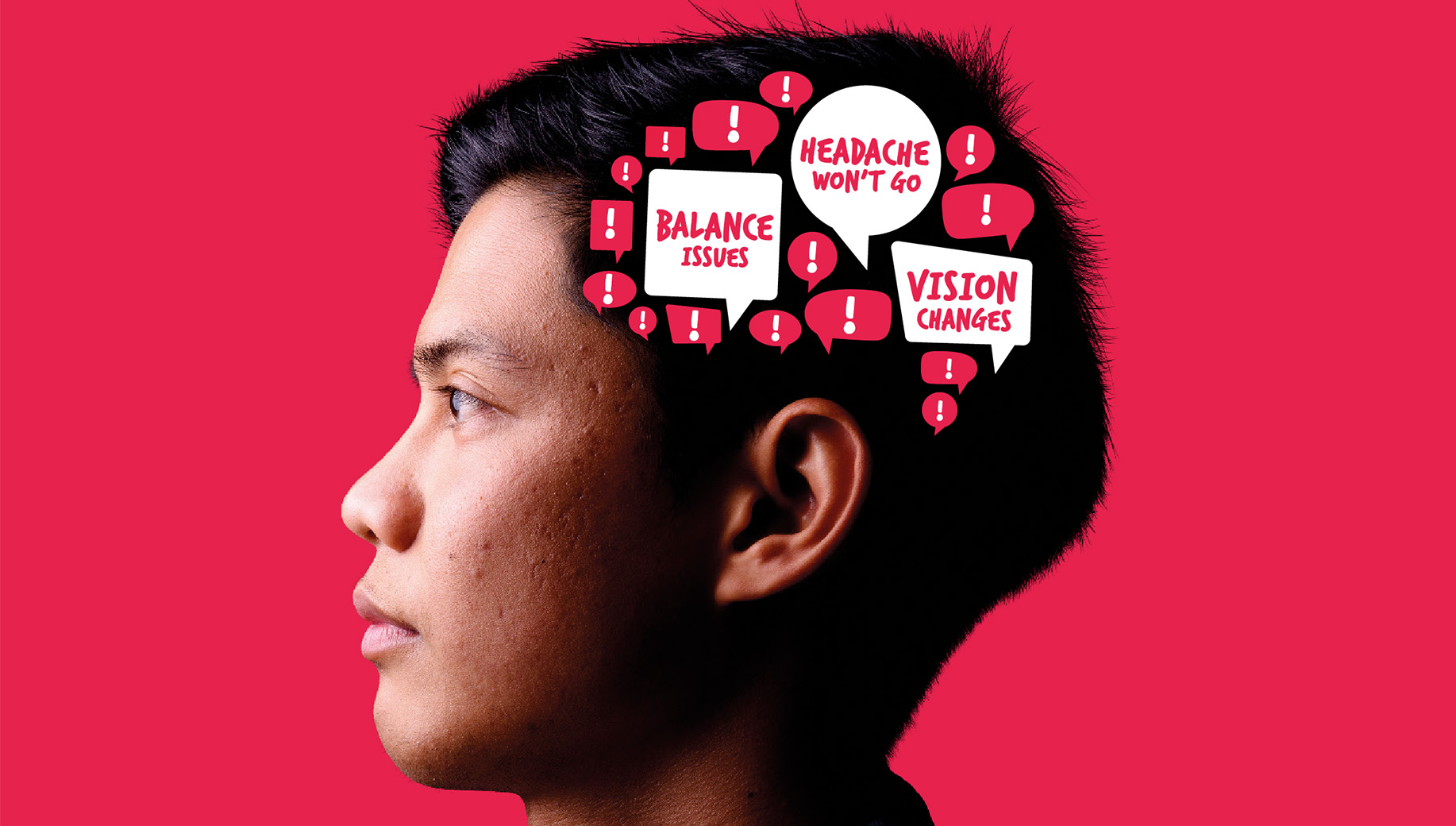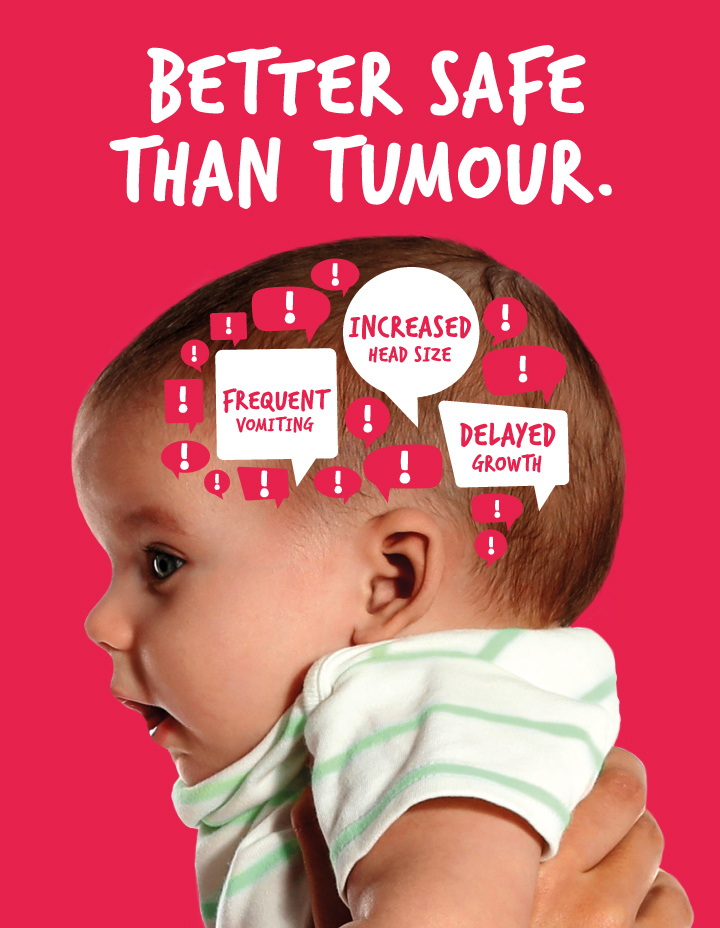Abnormal growth in a child
Abnormal growth can be caused by a number of things. But, it’s important to know that abnormal growth in a child can be a symptom of a brain tumour.

Here we’ll give you more information on how abnormal growth relates to brain tumours, what you should look for, and what to do if you think your child has a brain tumour.
On this page, we’ll cover:
- What is abnormal growth in a child?
- When might abnormal growth be a symptom of a brain tumour?
- Abnormal growth symptoms
- I think my child has a brain tumour, what should I do?
Other symptoms
Use our Better Safe Than Tumour symptom checker to check for other brain tumour symptoms.
Talking to your doctor
Learn more about how to approach your GP.
Get your free Information Pack
Our Brain Tumour Information Pack can help you better understand your diagnosis and feel confident talking to your medical team.
What is abnormal growth in a child?
Babies, children and teenagers will grow differently during childhood and puberty. But, this is normally within a particular range.
If their growth stops or is delayed, this can be a symptom of a brain tumour.
When might abnormal growth be a symptom of a brain tumour?
If you’re worried that your child’s growth has stopped or is lagging behind other children their age, you should make an appointment with your GP as soon as possible.
It’s important to be aware that if a baby, child or teenager has abnormal growth caused by a brain tumour, they are likely to have other brain tumour symptoms as well. In particular:
- delayed puberty
- excessive fluid intake (feeling very thirsty and drinking a lot)
- excessive urine (wee) production.
If symptoms appear suddenly or are severe, take your child to A&E or phone 999.
How do I know if my baby, child or teenager has abnormal growth?
The World Health Organisation has growth charts to show the usual range of growth for healthy children.
Take a look at these charts and compare your child’s growth. And, if you’re concerned about abnormal growth in your child, you should make an appointment with a GP.
If you’re a teenager and you’re worried about your growth, it’s best to talk to your GP about it.
I think my child has a brain tumour, what should I do?
Brain tumours are rare, however, if you’re worried and a symptom persists or if your child has more than one symptom of a brain tumour then:
- Talk to your doctor
GP appointments are usually quite short, so make sure you find out how to best prepare for your child’s appointment. - Get an eye test
If your child’s symptoms are limited to changes in vision and/or headaches, get their eyes tested by an optician before seeing your GP. - Go to A&E
If the symptoms are sudden or severe, you should go to your emergency department or call 999.
More information
Find out more about brain tumour signs and symptoms using our dedicated Headsmart site:

In this section

Know the Signs and Symptoms
Although brain tumours are rare, if you or a loved one are experiencing two or more of the signs and symptoms it’s important that you speak to your doctor to rule out a brain tumour.

Supporting you
Our Children & Families team offers support to children, young people and families affected by a brain tumour diagnosis. We’re here to help with any information you might need, answer your questions, listen and provide support.
Share your experiences and help create change
By taking part in our Improving Brain Tumour Care surveys and sharing your experiences, you can help us improve treatment and care for everyone affected by a brain tumour.